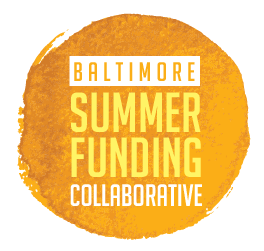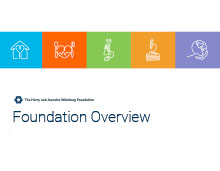The Baltimore Summer Funding Collaborative (the Collaborative) has awarded $5.3 million in grants to support 93 high-quality summer programs serving children and youth living in low-income families throughout Baltimore City. The Collaborative is a partnership between public, private, and nonprofit institutions that aims to create summer program opportunities for families that provide academic support to reduce summer learning loss, connect youth to valuable work experiences, and/or engage youth in enrichment activities that allow them to pursue interests, discover talents, and develop skills.
Collaborative members—some of Baltimore’s largest public, private, and nonprofit institutions—include the Abell Foundation, the Annie E. Casey Foundation, Baltimore Children and Youth Fund, Bloomberg Philanthropies, Clayton Baker Trust, Constellation, Family League of Baltimore, France-Merrick Foundation, The Harry and Jeanette Weinberg Foundation, The Hinkey-Benson Family Fund, Joseph & Harvey Meyerhoff Family Charitable Funds, Lockhart Vaughan Foundation, The Richman Family Foundation, and United Way of Central Maryland. While members of the Collaborative bring their own priorities to the table—including literacy, STEM, youth employment, and social-emotional wellness—they work together to make complementary funding decisions with the goal of supporting a diverse set of high-quality summer programs to reduce summer learning loss and ensure more youth have the chance to reach their full potential.
The Collaborative is committed to ensuring that Baltimore City youth can access programs that allow them to learn and grow during the summer months and prepare them for success throughout the year. This year, the Collaborative welcomed the Baltimore Children and Youth Fund, which committed $2 million in funding for summer programs run by Black, Indigenous, and People of Color-led organizations and for programs serving older youth ages 14-24. The older youth priority was identified as a result of the Baltimore City Youth Opportunities Landscape (BCYOL), a citywide data collection and analysis effort conducted by Baltimore’s Promise that showed that older youth disconnected from school and work had the fewest out-of-school time opportunities available to them. Employing an explicit equity lens, BCYF and the Collaborative have expanded funding for stakeholders that public and philanthropic funding have historically under-resourced.
In addition, Baltimore’s Promise facilitated a robust community review process for all 190 funding applications. The process engaged 11 community-based organizations and 150 individual reviewers. Reviewers used a Community Review Rubric developed from the findings of BCYOL, which in addition to mapping youth opportunities also engaged 161 young people, parents, and caregivers to understand local priorities for out-of-school time opportunities. The community review process provided SFC funders with in-depth insight into stakeholder perspectives. Many SFC funders either directly relied on community review results for decision-making or incorporated the scores and feedback into an existing decision-making process. The Baltimore Children and Youth Fund’s $2 million in funding, for example, was directly determined by community review results. In addition, all SFC 2022 applicants received feedback from the review process to support planning for their summer programs and future funding applications.
To learn more about the SFC, and to view a list of this year’s grant recipients, click here.




